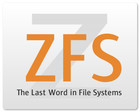Regarding one of my latest post, talking about Fluentd, some of you asked me why I’ve chosen Fluentd instead of Logstash. First of all, I’ve looked at this blog post, which kindly resume the current situation. Looking at this and with feedback I got, I could establish this array:
<td style="padding: 2px 3px 2px 3px; vertical-align: bottom; background-color: #c9daf8; font-weight: bold; text-align: center;" data-sheets-value="[null,2,"Logstash"]"> Logstash </td> <td style="padding: 2px 3px 2px 3px; vertical-align: bottom; background-color: #c9daf8; font-weight: bold; text-align: center;" data-sheets-value="[null,2,"Fluentd"]"> Fluentd </td> <td style="padding: 2px 3px 2px 3px; vertical-align: bottom; text-align: center;" data-sheets-value="[null,2,"Flexibility/Interoperability"]"> Flexibility/Interoperability </td> <td style="padding: 2px 3px 2px 3px; vertical-align: bottom; text-align: center;" data-sheets-value="[null,2,"Simplicity/Robustness"]"> Simplicity/Robustness </td> <td style="padding: 2px 3px 2px 3px; vertical-align: bottom; text-align: center;" data-sheets-value="[null,2,"JRuby"]"> JRuby </td> <td style="padding: 2px 3px 2px 3px; vertical-align: bottom; text-align: center;" data-sheets-value="[null,2,"Cruby"]"> Cruby </td> <td style="padding: 2px 3px 2px 3px; vertical-align: bottom; background-color: #d9ead3; text-align: center;" data-sheets-value="[null,2,"More"]"> More </td> <td style="padding: 2px 3px 2px 3px; vertical-align: bottom; background-color: #f4cccc; text-align: center;" data-sheets-value="[null,2,"Fewer"]"> Fewer </td> <td style="padding: 2px 3px 2px 3px; vertical-align: bottom; background-color: #f4cccc; text-align: center;" data-sheets-value="[null,2,"Basics"]"> Basics </td> <td style="padding: 2px 3px 2px 3px; vertical-align: bottom; background-color: #d9ead3; text-align: center;" data-sheets-value="[null,2,"Scalables"]"> Scalables </td> <td style="padding: 2px 3px 2px 3px; vertical-align: bottom; background-color: #f4cccc; text-align: center;" data-sheets-value="[null,2,"Lot"]"> Lot </td> <td style="padding: 2px 3px 2px 3px; vertical-align: bottom; background-color: #d9ead3; text-align: center;" data-sheets-value="[null,2,"Lot more"]"> Lot more </td> <td style="padding: 2px 3px 2px 3px; vertical-align: bottom; background-color: #d9ead3; text-align: center;" data-sheets-value="[null,2,"Simple (drop a jar)"]"> Simple (drop a jar) </td> <td style="padding: 2px 3px 2px 3px; vertical-align: bottom; background-color: #fff2cc; text-align: center;" data-sheets-value="[null,2,"Can be complex (dependancies)"]"> Can be complex (dependencies) </td> <td style="padding: 2px 3px 2px 3px; vertical-align: bottom; background-color: #d9ead3; text-align: center;" data-sheets-value="[null,2,"Yes"]"> Yes </td> <td style="padding: 2px 3px 2px 3px; vertical-align: bottom; background-color: #d9ead3; text-align: center;" data-sheets-value="[null,2,"Yes"]"> Yes </td> <td style="padding: 2px 3px 2px 3px; vertical-align: bottom; background-color: #f4cccc; text-align: center;" data-sheets-value="[null,2,"Forward to 2 hosts"]"> Forward to 2 hosts </td> <td style="padding: 2px 3px 2px 3px; vertical-align: bottom; background-color: #d9ead3; text-align: center;" data-sheets-value="[null,2,"LB A/A or A/P"]"> LB A/A or A/P </td> <td style="padding: 2px 3px 2px 3px; vertical-align: bottom; background-color: #f4cccc; text-align: center;" data-sheets-value="[null,2,"Can loss messages"]"> Can loss messages </td> <td style="padding: 2px 3px 2px 3px; vertical-align: bottom; background-color: #d9ead3; text-align: center;" data-sheets-value="[null,2,"No message loss"]"> No message loss </td> Logstash and Fluentd are both powerful solutions, they both got pros and cons.
Continue reading





